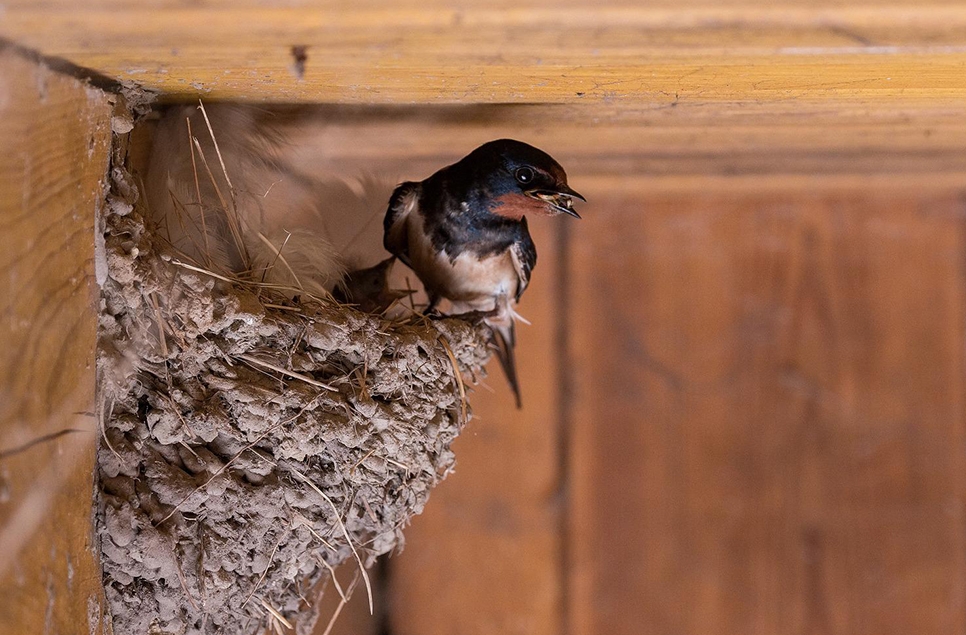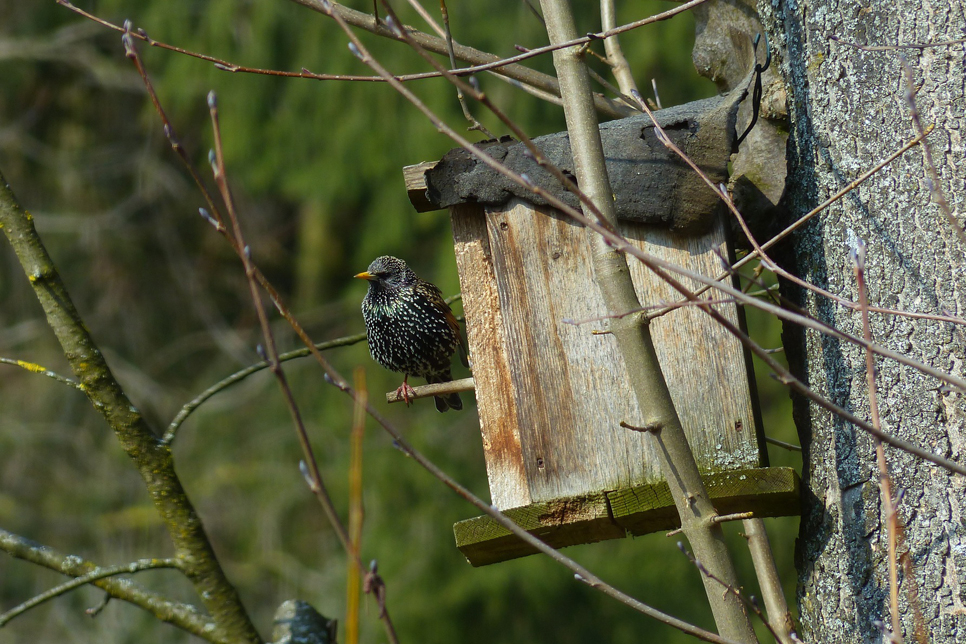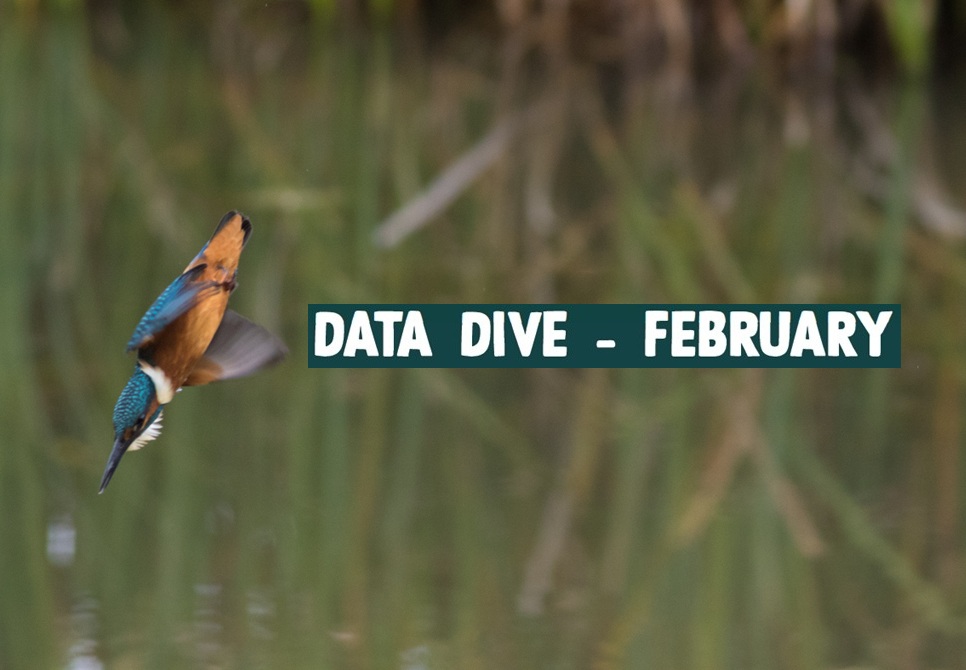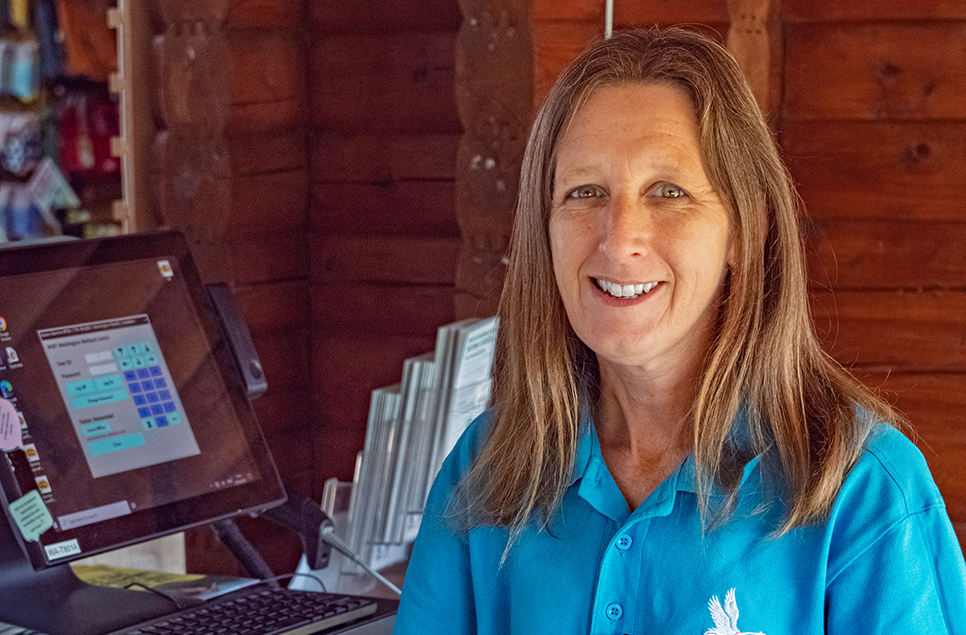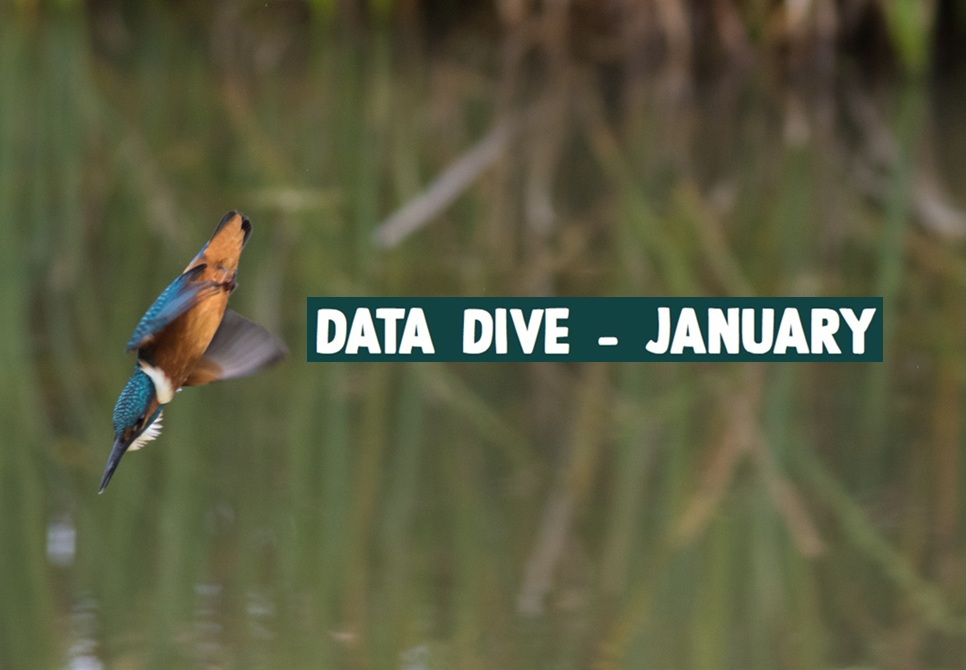Celebrating our wetland superstar dads
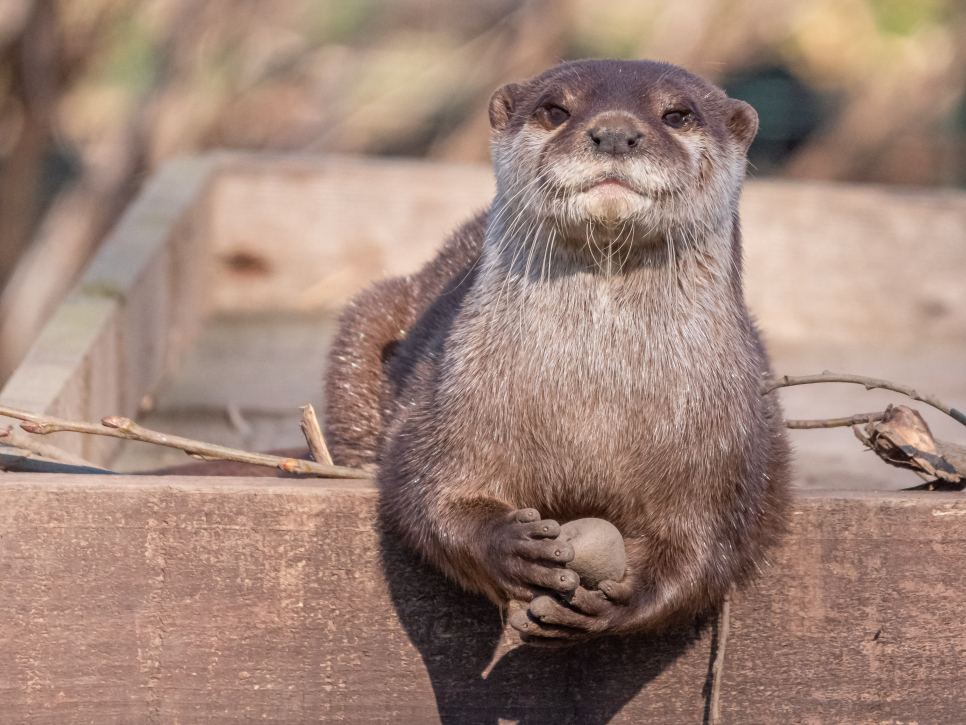
Fathers come in many forms and the natural world is full of wonderful examples of dedicated dads at their most loving, protective and nurturing.
This Father’s Day we pay homage to some of our wetland superstar patriarchs and give thanks to all of the amazing father figures in our lives who show support, guidance and are there for us when we need them most. Happy Father's Day!
Round two for black swans
In Close Encounters, our male black swan - along with his female companion - are raising a very sweet trio of cygnets, their third successful brood!
Having only been introduced to his mate in May 2021 the five-year-old cob has proved a natural at bonding well with his partner and helping to raise their cygnets.
As well as showing the youngsters how to up-end for food and preen their developing feathers, he has taught them to enthusiastically ‘shout’ at our keepers for breakfast during the morning feed round, which has been endearing to watch (if a little noisy to listen to!)
If you’re visiting this summer, be sure to spend some time in Close Encounters to see the progress of this lovely bird family, alongside other favourites such as common eider, falcated teal and swew.
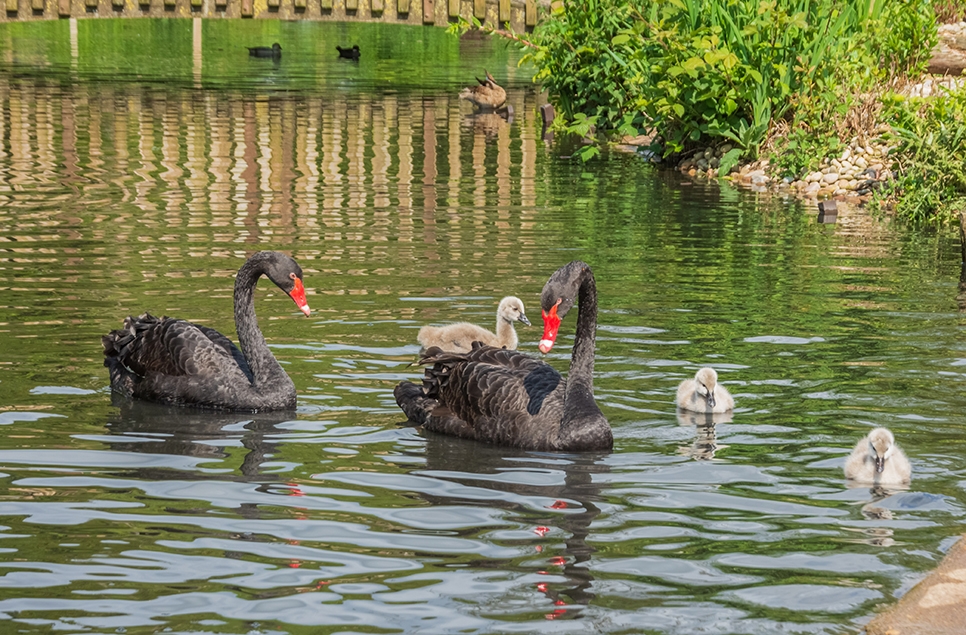
Forward-thinking flamingos
The person who coined the phrase "it takes a village to raise a child” might well have been observing flamingos.
Flocking together in their thousands in the wild, these enigmatic birds mate for life and rear their young as part of a colony, where the males are most definitely equal opportunists when it comes to parenthood.
Not only does the excited dad-to-be help select an ideal nesting site, he also gets stuck into constructing the mud volcano-shaped nest that will help keep their single egg safe and secure from the masses of moving legs surrounding it
Once it is laid, the father shares responsibility for incubating the egg, and the pair takes turns sitting on the nest for equal amounts of time. The young chick – or ‘flamingling’ as we like to call them! – is then cared for equally by both parents.
WWT Washington’s Chilean flamingo flock typically hatches chicks in late summer, although as a long-live species they won’t breed season after season like some birds. Sit awhile on the seating opposite their enclosure this July and August and let us know if you see the signs of any egg laying! Keeper talks for our Chilean flamingo flock take place daily at 11.45am and 2.45pm.
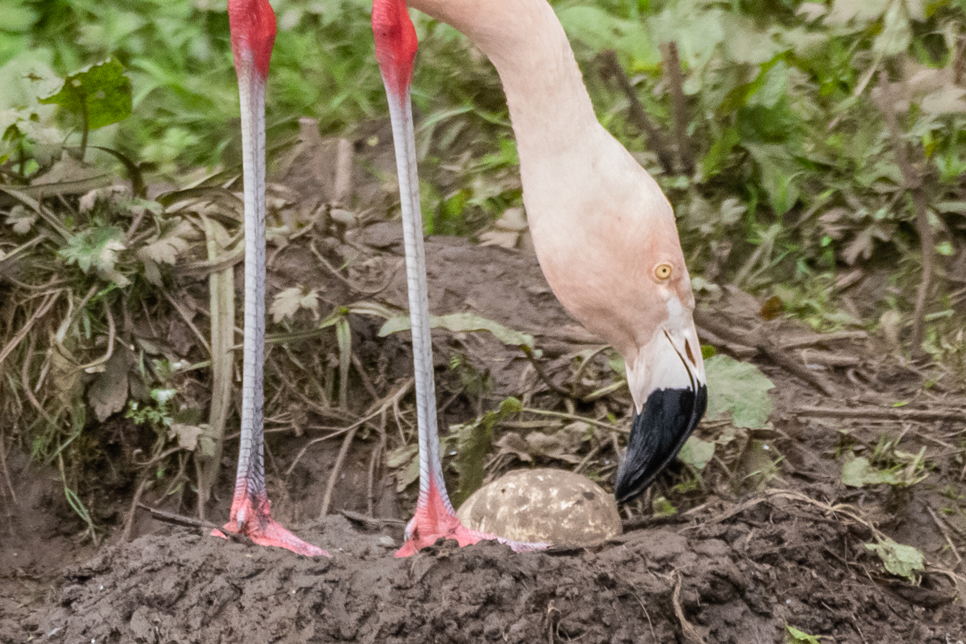
We are family
Musa, the patriarch of our Asian short-clawed otter family, is something of an expert dad, having fathered an amazing nine pups while in our care: Ruby (born in May 2015), Ash, Tod, Pip and Sam (March 2016) and Rita, Irene, Shirley and Buster (March 2017).
In the wild, a litter of ASCO pups will stay with their mother until the next litter is born, at which point they move on to start their own families. Here at WWT Washington, 12-year-old Musa has been much more involved in rearing his offspring, giving us the chance to see first-hand how doting an otter dad can be.
While partner Mimi was nursing and caring for their newborn youngsters, Musa was observed frequently carrying food into the holt to sustain her, as well as fresh straw to keep their home dry and cosy.
He now lives happily alongside Mimi and their youngest son Buster is currently in a neighbouring enclosure, who certainly isn’t too cool to be seen hanging around with his loving parents! Catch them throughout the day rolling around in mud, dexterously juggling pebbles and greeting the public with squeaky cries. Commentated feeds take place daily at 11.30am and 2.30pm.
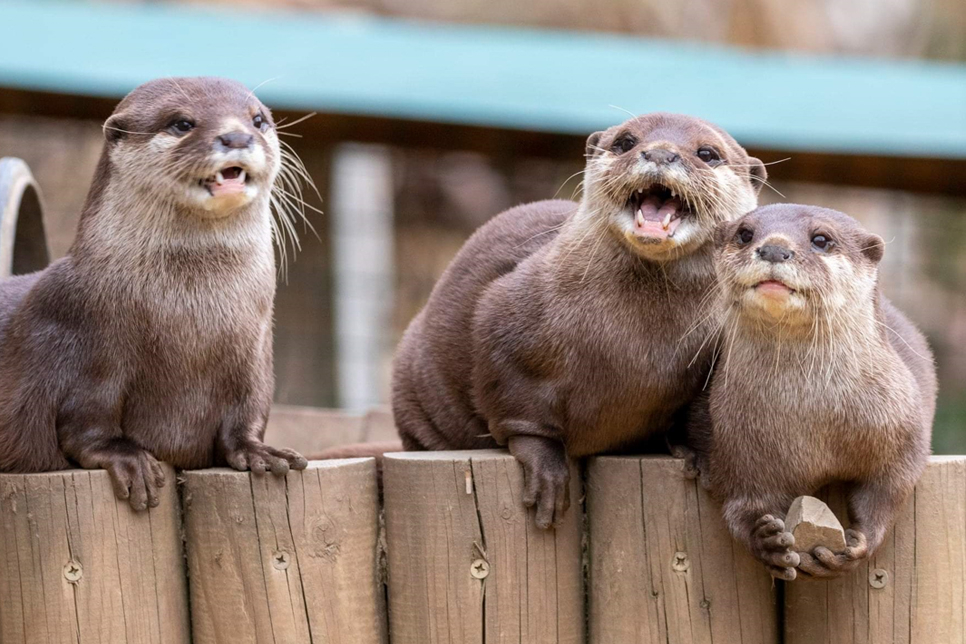
Please dad, can I have some more?
In shorebird species, such as oystercatchers, mothers commonly depart before the chicks fledge, meaning fathers often provide parental care for longer.
The hides at Wader Lake offer unrivalled views of this behaviour in action, with oystercatcher dads spending the long summer days showing their youngsters how to fish and feed for themselves.
Research has shown that this extended period of bonding may explain why, despite being able to fly and feed independently, juvenile oystercatchers have been observed begging their dads for food several months after fledging. Oh, we know that how feels Mr Oystercatcher!
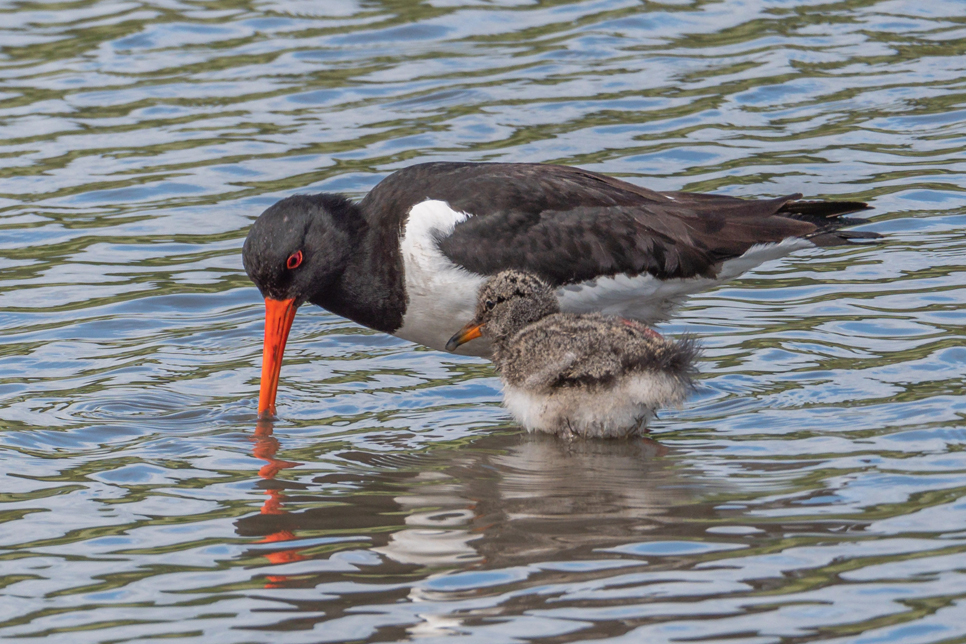
Role reversal
It is well-documented that swans mate for life, but did you also know that they have each other’s backs when it comes to parenting?
Mute swan mothers are typically in charge of rearing their cygnets, teaching them to feed and guiding them as they explore, while the male is known for being fiercely protective and on constant high alert for any threats to his new family.
But mute swan dads are also incredibly nurturing; carrying their babies on their backs and spending time with them as they grow, particularly during the annual moult, when the female steps into the role of protector while her partner is flightless but able to spend more time with the kids.
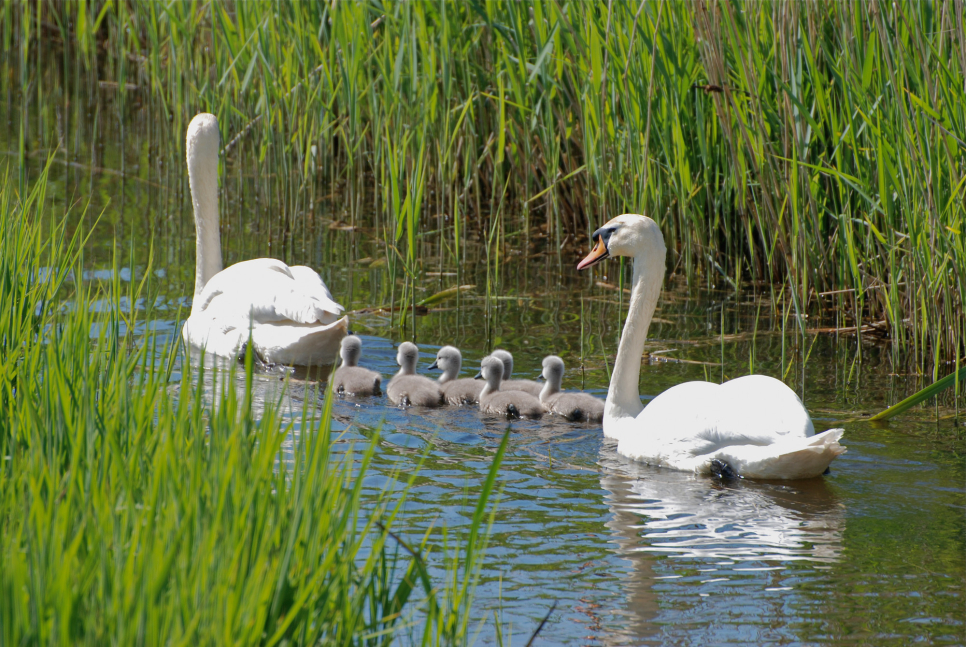
‘Common’ have a go if you think you’re hard enough!
Each summer, the shingle islands of Wader Lake become a hub of activity, with numerous wading bird species hatching and raising chicks.
Much of the cacophony can be attributed to our common terns, which, at more than 100-pairs strong, form a key local breeding colony. Their annual return is very much a seasonal highlight and the commotion created by the defensive common tern dads as they ward off potential predators is an indication of their natural fathering instinct.
As the season rolls along, the rapidly growing tern chicks add their eager cries for food to the daily din across the water, making for an incredible spectacle for the eyes and ears that’s not to be missed!
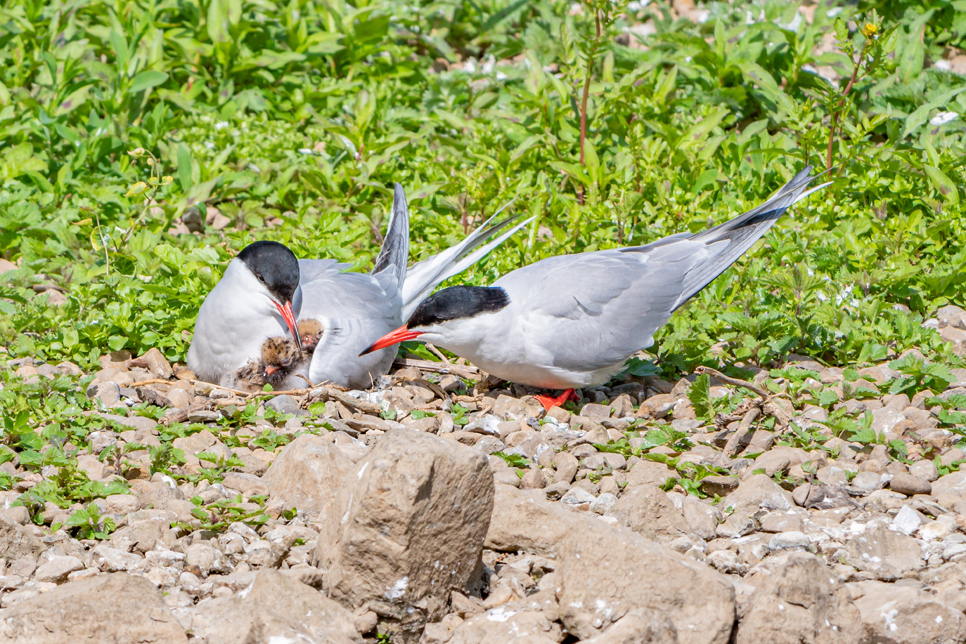
All together now
Swallows are never short of a helping hand – or beak – when it comes to raising young. Older siblings and other adults of both sexes all act as parental figures, assisting with nest-building, incubation and brooding, as well as seeing off predators by defending the nest.
Feeding time is an extended family affair too, with brothers, sisters and cousins taking turns bringing insects to the hungry baby chicks. Now that’s a family unit that a dad can be proud of!
Keep an eye out from early summer onwards for signs of swallow activity in the barns, hides and buildings around our wetlands. The café veranda is a particularly popular spot for sightings of these beautiful birds zipping back and forth with food to their nest, tucked away in the rafters of the sedum roof above. Now that’s a brew with a view!
Ready to visit?
If you've been inspired to explore Washington Wetland Centre, find out more and plan your visit online.
Plan your visit